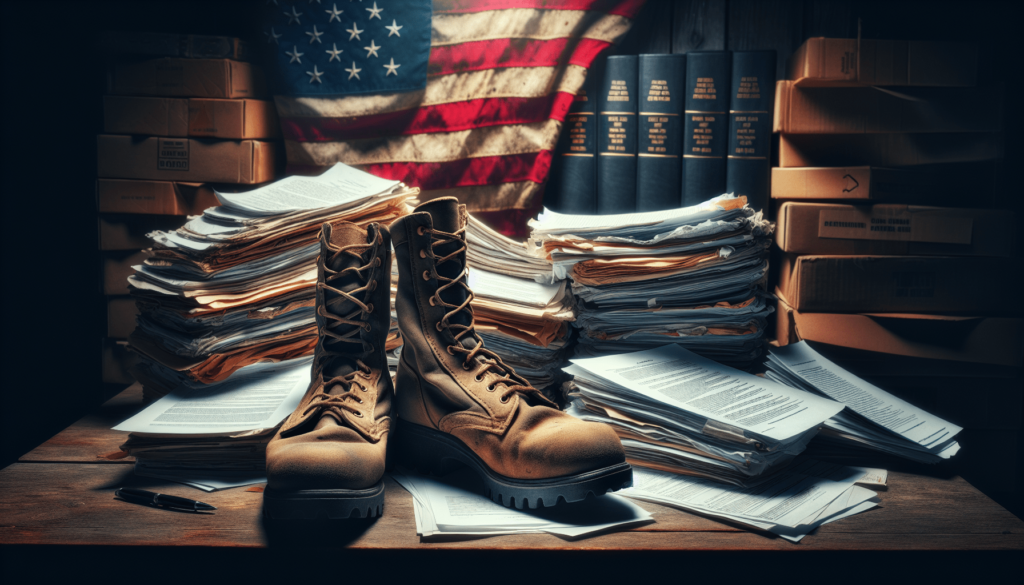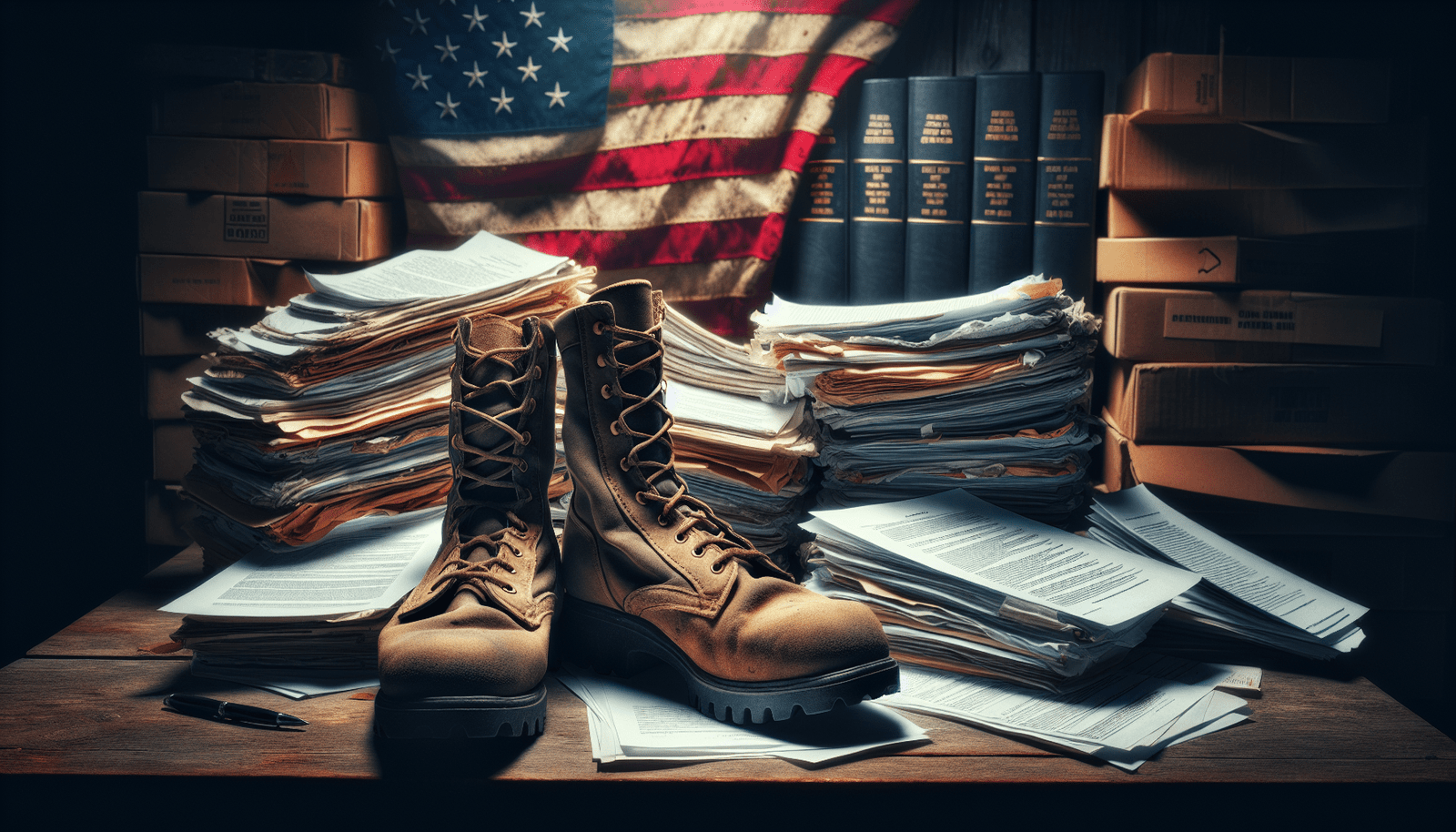Understanding the process of military discharge upgrades can often feel overwhelming, but you’re not alone on this journey. “Navigating Military Discharge Upgrades: A Veteran’s Guide” is your companion, shedding light on the essential steps and resources that can help transform this challenging path into a straightforward one. This guide aims not only to inform but also to empower you, providing a beacon of support that connects you with vital information, fellow veterans, and opportunities to flourish in civilian life. Whether it’s unlocking the door to enhanced benefits, seeking educational advancements, or finding the right career path, this guide is dedicated to ensuring your voice is heard and respected. Join us in turning the page to a new chapter where your service is honored with the respect and opportunities you richly deserve.

Understanding Military Discharge Types
Overview of discharge types (Honorable, General, Other Than Honorable, Bad Conduct, and Dishonorable)
When you leave the military, the nature of your discharge can significantly affect your future. There are five primary types of military discharge: Honorable, General (Under Honorable Conditions), Other Than Honorable (OTH), Bad Conduct, and Dishonorable. An Honorable discharge is the goal; it means you met or exceeded the required standards of service. A General discharge may be given to those whose service was satisfactory but not up to the highest standards. An OTH discharge indicates some level of misconduct or failure to meet standards. Bad Conduct and Dishonorable discharges are punitive and typically result from serious offenses; these can only be issued by a court-martial.
How discharge type affects veterans’ benefits
The type of discharge you receive has a direct impact on your eligibility for veterans’ benefits. For instance, only those with Honorable and, to some extent, General discharges are eligible for the full range of VA benefits, including home loans and educational assistance under the GI Bill. An OTH discharge may disqualify you from most VA benefits, although you might still qualify for certain medical benefits. Bad Conduct and Dishonorable discharges, generally, eliminate eligibility for all VA benefits.
The importance of discharge type in civilian life
Beyond benefits, the type of military discharge can influence your civilian life, affecting employment opportunities and your public record. Many employers ask about military service, and an Honorable discharge is a mark of distinction, while an Other Than Honorable, Bad Conduct, or Dishonorable discharge may raise questions.
Eligibility for Discharge Upgrade
Criteria for eligibility
You may be eligible for a discharge upgrade if you believe your discharge was unjust, inequitable, or improper. Unjust means the legal standard or procedure wasn’t properly followed. Inequitable refers to the fairness of the discharge, given your entire military record. Improper discharges might be based on incorrect information.
Time limits for applying for an upgrade
Generally, you have 15 years to apply for a discharge upgrade through the Discharge Review Board (DRB). If you miss this window, you can still apply to the Board for Correction of Military Records (BCMR), which does not have a time limit but requires a stronger justification for consideration.
Special considerations (PTSD, TBI, mental health, sexual orientation)
Special considerations can impact your discharge upgrade application. Conditions like PTSD, TBI, and other mental health issues, which may not have been adequately addressed during your service, are recognized factors. Similarly, discharges that were influenced by discrimination against sexual orientation (especially under previous policies like “Don’t Ask, Don’t Tell”) can also be grounds for upgrade.
The Discharge Upgrade Application Process
Documents and information needed
Start by gathering all necessary documents, including your DD214 (discharge papers), service and medical records, and any evidence supporting your case for an upgrade. Detailed personal statements and letters of recommendation can also be helpful.
Steps for completing the application
Applying for a discharge upgrade involves completing the right forms (DD Form 293 for DRB, DD Form 149 for BCMR) and submitting them along with your supporting documents. Clearly state why you believe your discharge should be upgraded, referencing any relevant laws, regulations, or evidence.
Choosing between DRB (Discharge Review Board) and BCMR (Board for Correction of Military Records)
The choice between DRB and BCMR often depends on when you are applying. DRB is for those within 15 years of discharge, while BCMR is for those outside of that timeframe or who have already been denied by the DRB. BCMR can also consider a wider range of evidence.
Writing an Effective Personal Statement
Importance of a personal statement in the application process
A personal statement is your chance to tell your story, providing context and explanations that are not evident from your military record alone. It’s a powerful tool to personalize your application and illustrate the impact of your discharge on your life.
Tips for writing a compelling narrative
Keep your narrative focused, honest, and respectful. Start by outlining the key points you want to make, then expand on them, providing specific examples. Make sure to highlight any changes, growth, or realizations that have occurred since your discharge.
Examples of successful arguments for discharge upgrades
Successful arguments often involve demonstrating that your discharge was unjust or inequitable. For instance, you might provide evidence of exemplary service before an incident, show that your actions were out of character due to untreated mental health issues, or prove that procedural errors affected your discharge.

Gathering Supporting Documentation
Types of documents to include
Include all relevant military and medical records, awards, commendations, and letters of support. Documents that demonstrate a strong community connection, ongoing personal development, or rehabilitation efforts are particularly persuasive.
How to obtain military and medical records
You can request your military and medical records through the National Archives. It’s a straightforward process that involves filling out a Standard Form 180 and submitting it to the appropriate agency.
The role of character references and support letters
Character references and support letters add personal insights into your character and behavior outside of service. They should come from respected community members, employers, or anyone who can speak credibly about your character and contributions.
Legal Representation and Veteran Advocacy Groups
Benefits of legal representation
Having a lawyer who specializes in military law can significantly improve your chances of success. They can help navigate the complex application process, develop a strong case, and represent you during any hearings or appeals.
Finding a lawyer specializing in military law
You can find a lawyer through referrals from veteran advocacy groups, legal aid organizations, or the National Veterans Legal Services Program. Ensure they have experience with discharge upgrades and a track record of success.
How veteran advocacy groups can help
Veteran advocacy groups offer invaluable support, from providing guidance on the discharge upgrade process to connecting you with legal representation. They’re also a great source of emotional support, understanding the unique challenges you face.
Navigating the Review Boards
Understanding the role of the Discharge Review Board (DRB) and Board for Correction of Military Records (BCMR)
The DRB and BCMR play crucial roles in the discharge upgrade process. The DRB directly reviews applications for discharge upgrades within 15 years, while the BCMR corrects military records, including discharges, at any time post-service.
What to expect during the review process
The review process can be lengthy and involves a detailed examination of your application, documents, and any provided testimonials. You might be invited to present your case in person or via video conference.
Appealing a decision
If your application is denied, you can appeal the decision. For DRB decisions, you would then apply to the BCMR. If the BCMR denies your application, you might seek a judicial review, though this is a complex and rarely successful route.
Common Challenges and How to Overcome Them
Delays and bureaucratic hurdles
The upgrade process can be slow. Stay patient and persistent, regularly checking on the status of your application and being prepared to submit additional information if requested.
Insufficient evidence or documentation
If you’re struggling to gather evidence, consider reaching out to fellow service members who can provide statements or seeking legal assistance to help build your case.
Overcoming a negative decision
If faced with a denial, review the reasons carefully. An attorney can help you understand any shortcomings in your application and prepare a stronger appeal.
Resources and Support for Veterans
Comprehensive list of veteran support organizations
Many organizations are dedicated to supporting veterans through the discharge upgrade process. These include the Veterans Consortium, American Legion, and Disabled American Veterans (DAV).
Government resources for veterans seeking discharge upgrades
The Department of Defense and the Department of Veterans Affairs offer guidelines and assistance for those seeking discharge upgrades. Their websites provide forms, instructions, and valuable advice.
Online communities and forums for peer support
Online forums and communities, such as those on social media or veteran-specific websites, offer a platform to share experiences, advice, and support with fellow veterans who are navigating similar challenges.
Maintaining Hope and Persistence
The importance of resilience throughout the discharge upgrade process
The process can be trying, but maintaining hope and persistence is key. Remember, you’re not just fighting for a change in status; you’re advocating for recognition of your full story and service.
Maintaining mental health and wellness during the application
Taking care of your mental health is crucial. Reach out for support when needed, whether to family, friends, or professional counselors. Staying engaged with your community and pursuing activities that bring you joy can also make a significant difference.
Support networks and seeking help when needed
Never hesitate to lean on your support network. Whether it’s legal advice, emotional support, or just someone to talk to, there’s a community of veterans and advocates ready to stand with you. Remember, no veteran stands alone.
